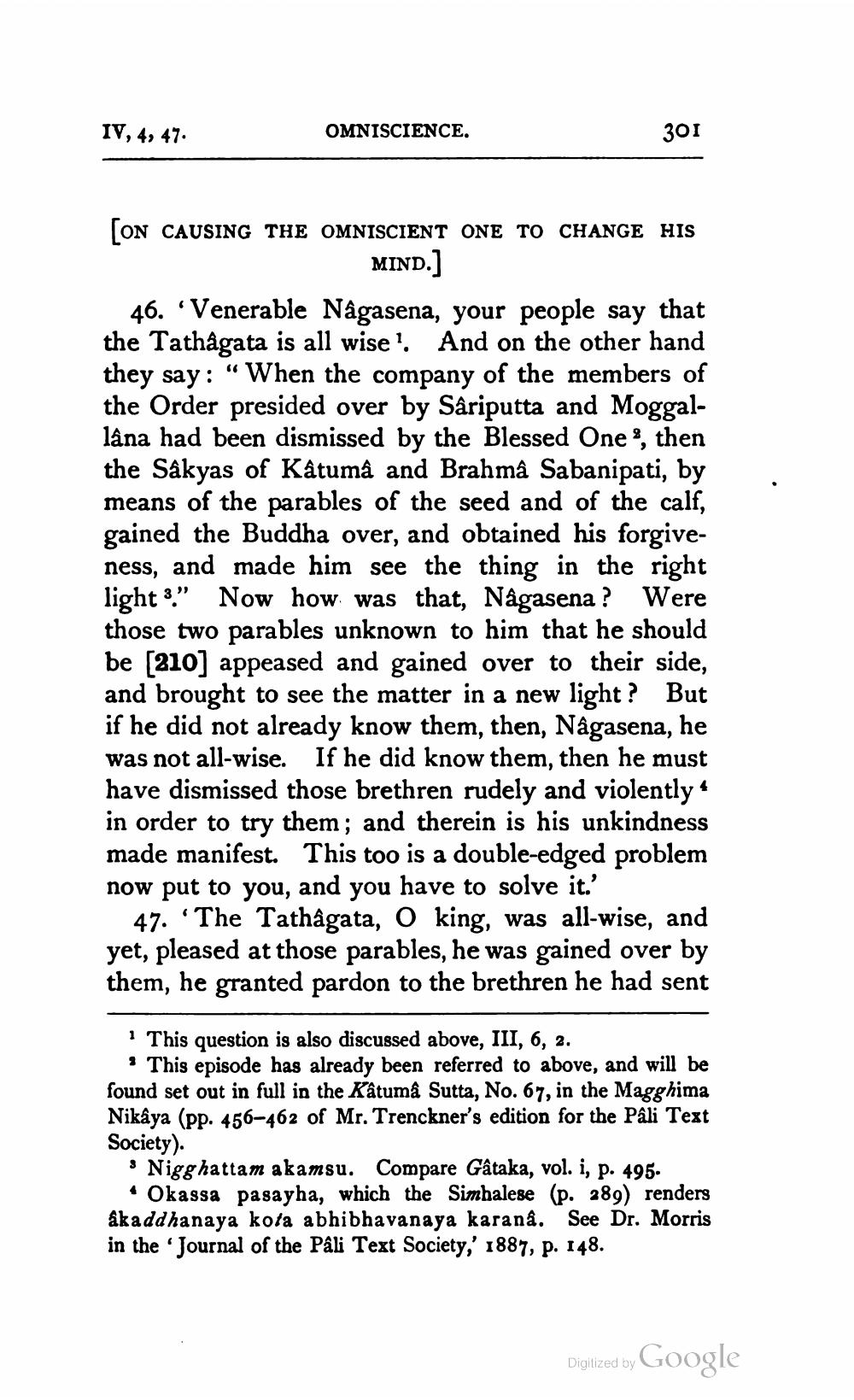________________
IV, 4, 47.
OMNISCIENCE.
301
CON CAUSING THE OMNISCIENT ONE TO CHANGE HIS
MIND.] 46. “Venerable Nâgasena, your people say that the Tathagata is all wise! And on the other hand they say: “When the company of the members of the Order presided over by Sâriputta and Moggallâna had been dismissed by the Blessed One , then the Sakyas of Katumà and Brahma Sabanipati, by means of the parables of the seed and of the calf, gained the Buddha over, and obtained his forgiveness, and made him see the thing in the right light 3." Now how was that, Nagasena ? Were those two parables unknown to him that he should be [210] appeased and gained over to their side, and brought to see the matter in a new light? But if he did not already know them, then, Nagasena, he was not all-wise. If he did know them, then he must have dismissed those brethren rudely and violently 4 in order to try them; and therein is his unkindness made manifest. This too is a double-edged problem now put to you, and you have to solve it.'
47. “The Tathagata, o king, was all-wise, and yet, pleased at those parables, he was gained over by them, he granted pardon to the brethren he had sent
1 This question is also discussed above, III, 6, 2.
• This episode has already been referred to above, and will be found set out in full in the Kâtuma Sutta, No. 67, in the Magghima Nikâya (pp. 456-462 of Mr. Trenckner's edition for the Pâli Text Society).
* Nigghattam akamsu. Compare Gâtaka, vol. i, p. 495.
• Okassa pasayha, which the Simhalese (p. 289) renders åkaddhanaya kota abhibhavanaya karana. See Dr. Morris in the Journal of the Påli Text Society,' 1887, p. 148.
Diglized by Google




